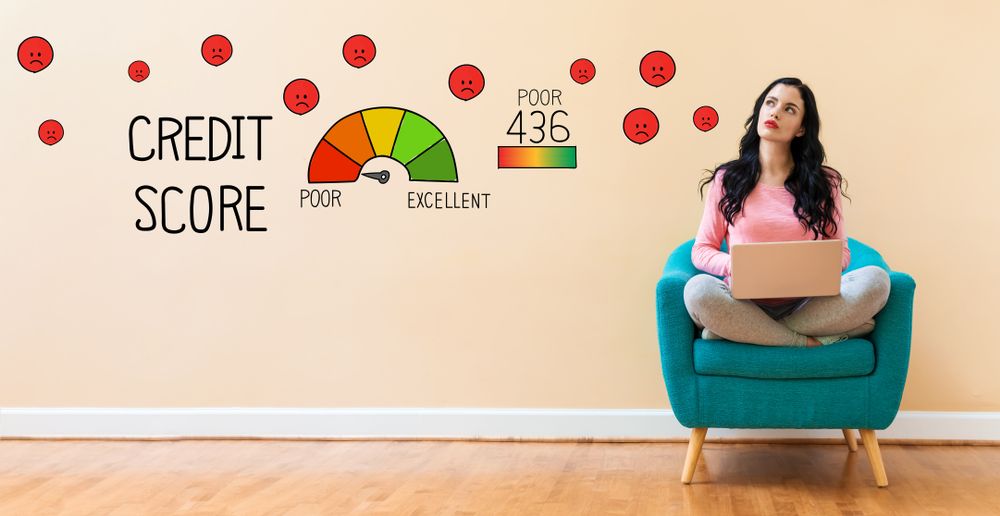Establishing Good Credit in College
Good credit may open doors. It is vital to securing a loan, a business loan, or buying a home. When you establish and maintain good credit in college, you create a financial profile for yourself that can influence lenders, landlords, and potential employers.
Unfortunately, some college students do not have good credit. In fact, Credit Karma says that the average 18-to-24-year-old has a credit score of 630. A FICO score of 730 or higher is considered good.[i]
What are the steps toward a good credit score? To start, you need to utilize credit. About 15% of your credit score is built on the length of your credit history, so the sooner you purchase goods and services with a credit card and pay off that debt, the sooner you create a record of credit use.1
Aim to reduce the balance to $0 every month. Does this sound like a challenge? It may not be if you just use a credit card to purchase everyday things. When you start splurging with a credit card, paying off the balance in full can become a problem.1
Pay your credit card bill on time. Roughly 35% of your credit history develops from your pattern of payments: how on time they are, how late they are. One approach to consider is scheduling automated payments from your bank account, schedule reminders, or just try to pay the bill as soon as it arrives.1
Refrain from applying for 2-3 credit cards at once. About 10% of your credit score reflects your history of credit inquiries, so if you suddenly apply for another 2-3 cards, you could hurt your score.1
Another potentially bad move is jumping from card issuer to card issuer – that is, getting a card, then closing that credit card account and opening a new one after a few months because you find another credit card with better perks. In doing this, you end up giving yourself a shorter credit history per credit card account.1
What if you have problems getting a traditional card? If you have no income, you might run into this – or, there might be other reasons that make it hard for you to qualify for one. If this is the case, consider going to the bank or credit union where you have a savings account and applying for a secured credit card. With these types of cards, you transfer some money into an account linked to the use of the card, and that amount represents your credit card limit. You can also ask to become an authorized user on a credit card held by one or both of your parents.1
You can potentially help your credit score in other ways. Consistent bill paying is a plus for your credit history. If you do become an authorized user on a parent’s credit card and they use credit responsibility, just being linked to that account history could help your credit rating. If you are living off campus, you might end up co-signing a lease so make certain you understand you and your roommates’ financial obligations. Financially negligent ones could hurt your credit rating if, for example, you are sharing utilities costs. With financially trustworthy roommates, you may avoid that kind of credit score damage. Lastly, if you move while in college, be vigilant about having your bills forwarded to you, to avoid missing payments.1
To learn more about CapSouth Wealth Management and the services we provide, call our office at 800.929.1001 or visit our website at www.capsouthwm.com
Investment advisory services are offered through CapSouth Partners, Inc., dba CapSouth Wealth Management, an independent registered Investment Advisory firm. Information provided by sources deemed to be reliable. CapSouth does not guarantee the accuracy or completeness of the information. This material has been prepared for planning purposes only and is not intended as specific tax or legal advice. Tax and legal laws are often complex and frequently change. Please consult your tax or legal advisor to discuss your specific situation before making any decisions that may have tax or legal consequences.
This article contains external links to third party content (content hosted on sites unaffiliated with CapSouth Partners). The policies and procedures governing these third-party sites may differ from those effective on the CapSouth company website, as outlined in these Disclaimers. As such, CapSouth makes no representations whatsoever regarding any third-party content/sites that may be accessible directly or indirectly from the CapSouth website. Linking to these third-party sites in no way implies an endorsement or affiliation of any kind between CapSouth and any third party, including legal authorization to use any trademark, trade name, logo, or copyrighted materials belonging to either entity.
[i] https://thesimpledollar.com/how-to-build-good-credit-in-college/



